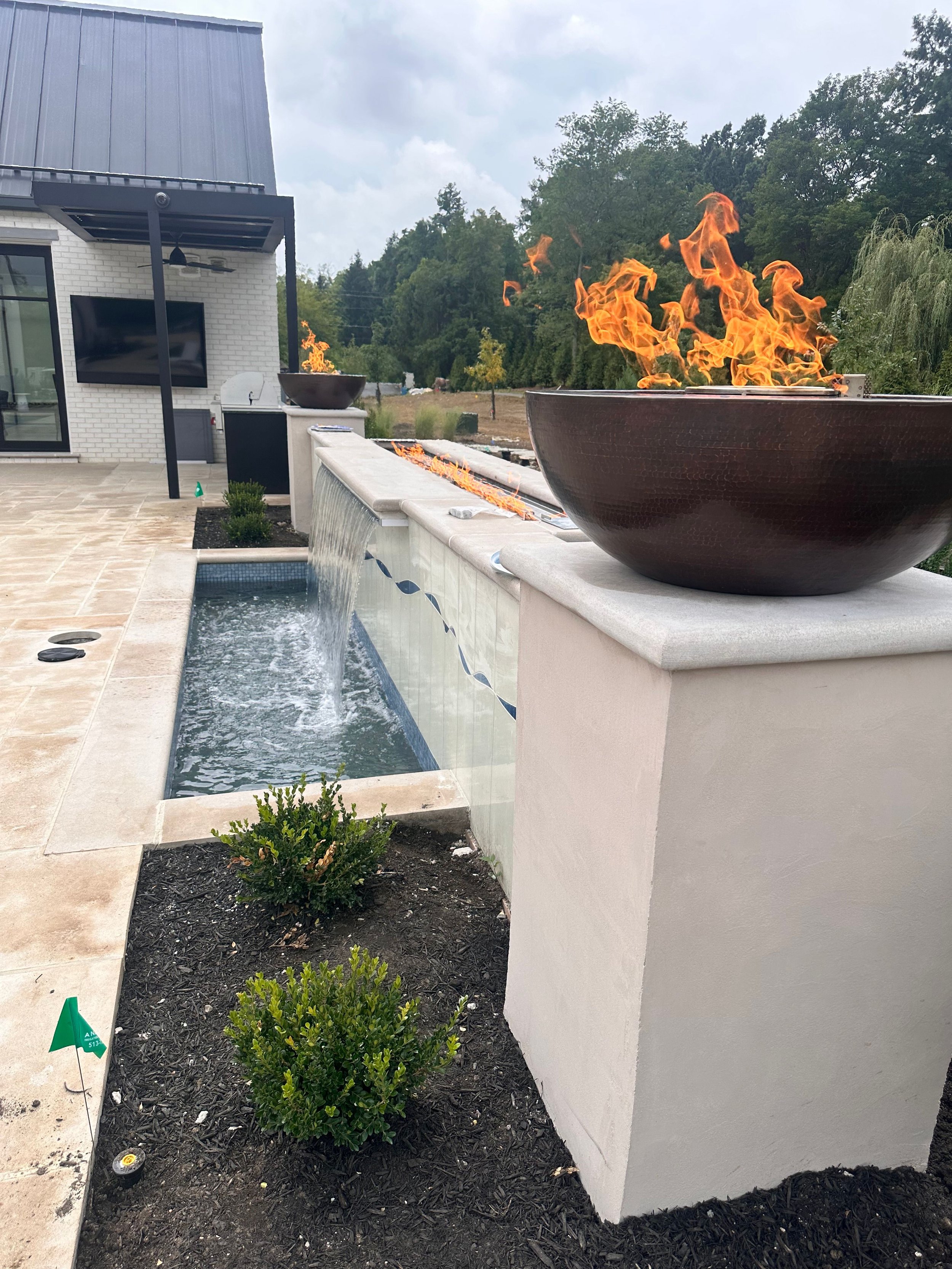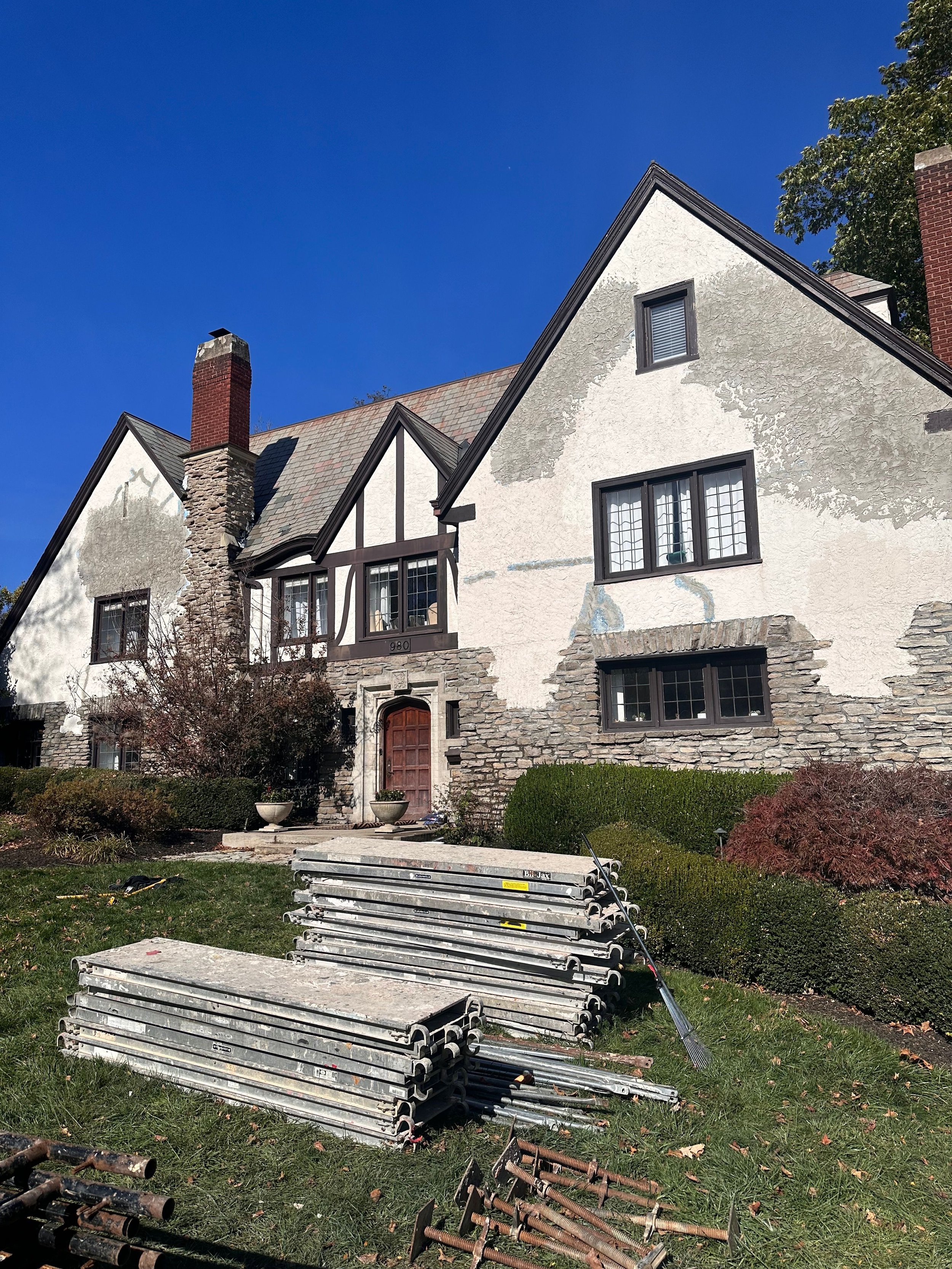-

Stucco Repair
Prevent Future Damage: To prevent further damage, ensure that the stucco is properly sealed and that the surface is maintained regularly. Regular inspections can help catch small issues before they turn into bigger problems.
Common Causes of Stucco Damage
Cracks: These can be caused by settling, temperature changes, or moisture infiltration.
Holes or Dents: Impact damage from objects like debris, lawn equipment, or heavy winds.
Water Damage: Prolonged exposure to moisture can cause stucco to deteriorate or become moldy.
Shrinkage: Over time, stucco can shrink, causing visible cracks or gaps.
Delamination: This is when layers of stucco begin to separate, often due to water infiltration behind the stucco layer.
-

Stucco Foundation
Cement stucco is a strong, durable, and versatile finish for exterior walls, providing both aesthetic appeal and long-lasting protection from the elements. The multi-layer application process creates a solid foundation that can withstand years of exposure to weather and wear. Whether you're building a new home or re-facing an existing structure, cement stucco offers a reliable, low-maintenance solution that can be customized to suit a wide variety of architectural styles.
Considerations When Installing Cement Stucco
Expansion Joints: Because stucco is a rigid material, expansion joints are necessary to accommodate the natural expansion and contraction of the walls.
Repairs: Although cement stucco is durable, cracks can still occur over time due to settling, temperature fluctuations, or impacts. Fortunately, it is relatively easy to repair with patching
-

Synthetic Stucco-EIFS
Acrylic stucco, also known as synthetic stucco or EIFS (Exterior Insulation and Finish System), is a modern alternative to traditional stucco. It is made from a combination of acrylic resins, polymers, and fillers, giving it a more flexible and lightweight finish. Acrylic stucco is often used in areas with colder climates or areas prone to cracking due to its greater flexibility.
Benefits: It is highly resistant to cracking, moisture, and impact damage. It also tends to be more energy-efficient as it incorporates insulation as part of the system.
Benefits: EIFS is lightweight, highly insulative, and energy-efficient. It also allows for creative design flexibility as it can be sculpted into different shapes and textures.
Applications:
Acrylic stucco is commonly used on modern residential buildings, commercial spaces, and buildings that require enhanced insulation. It is also suitable for a variety of textures, ranging from smooth to textured finishes. -

Textured Stucco
Textured stucco finishes are applied to create a range of surface patterns that enhance the aesthetic appeal of the walls. The texture can be achieved by manipulating the final coat of stucco with various trowels, brushes, or other tools to create a distinctive look.
Common Textures:
Sand Finish: A smooth texture with slight grit, perfect for a subtle effect.
Dash Finish: Features a rough, pebbled texture.
Skip Trowel Finish: A more artistic, layered finish that gives a rustic look.
Santa Barbara: A smooth, flat, and highly polished finish that mimics the look of Venetian plaster.
Swirl Finish: A decorative pattern that creates circular motion patterns on the surface.
Applications:
Textured stucco finishes are primarily used in exterior applications to add visual interest to the building's facade. They can be used on both residential and commercial buildings to create unique, character-filled surfaces.
Why Choose Stocco?
Stocco offers a unique combination of elegance, texture, and durability that makes it a standout choice for any space. Its natural, breathable composition promotes a healthy living environment, while its customizable finishes allow it to adapt to various design styles—from rustic to refined. Whether you're looking to create a warm, inviting home or a sophisticated commercial space, Stocco delivers timeless beauty that endures for years.
Choosing the Right Stucco Type
The type of stucco you choose depends on various factors, including the desired aesthetic, climate, budget, and the building's intended use. Whether you're looking for a traditional, durable finish or a smooth, modern look, there is a stucco type to suit every need. Each type of stucco offers its own benefits, from the polished elegance of Venetian stucco to the energy-efficient performance of EIFS.



